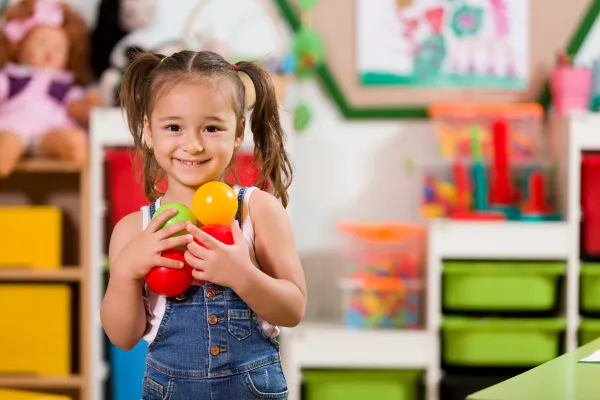
Blog Posts
Explore helpful tips, parenting advice, and insights on early childhood education at our preschool blog in Sandy, UT.

How Early Childhood Education Shapes a Child’s Future

The Lasting Impact of Early Childhood Education on a Child’s Future
Preschool is more than a place for play—it's an important part of a child's development that has lasting effects well into adulthood. Early childhood education lays the foundation for how young children learn, interact with others, and view the world. When children are placed in a nurturing, high-quality preschool program, they gain far more than academic skills—they begin building the habits, values, and abilities that shape their future success.
Cognitive, Emotional, and Social Growth
During these early years, children experience rapid cognitive, emotional, and social growth. A high-quality preschool environment provides structured opportunities to develop skills socially and emotionally. Children learn to express feelings, practice empathy, share, and work through simple conflicts—all in a safe and supportive setting. These lessons build the emotional resilience and interpersonal skills necessary for success in school and life.
Academic Benefits of Preschool
Research consistently shows that children who attend strong early childhood education programs enter kindergarten more prepared than their peers. They show advanced vocabulary, better number sense, and early literacy skills. But the benefits go beyond academics. Children from high-quality preschools demonstrate better self-regulation, more curiosity, and stronger motivation to learn. These foundational traits contribute to lifelong educational achievement and emotional well-being.
Special Education and Inclusion Practices
Special education and inclusion practices also play a vital role in early learning environments. Skilled educators trained in early childhood development and special education can identify and address diverse learning needs from a young age. This early intervention can prevent future challenges and ensure every child, regardless of ability, has access to a nurturing and supportive start.
Building Independence and Responsibility
Another major benefit of early childhood education is the development of independence and responsibility. Preschool routines—like putting away personal items, participating in group activities, or following class rules—help children gain autonomy and confidence. These simple, daily structures give children a sense of control and predictability, which supports emotional stability and classroom success.
The Role of Social Emotional Learning
At Ladu Preschool for the Arts, we believe that early childhood education should be joyful, purposeful, and inclusive. Our preschool program integrates creative arts, play-based learning, and developmentally appropriate academics in a child-centered environment. We offer small class sizes, dedicated educators, and a curriculum that supports each child’s growth across cognitive, physical, and emotional domains.
Social Emotional Skills Development in Preschool
One of the most socially emotionally enriching parts of preschool is how children learn to function in group settings. From making friends to resolving conflicts and working on group projects, young children are developing essential life skills. These interactions help children build empathy and understand how to communicate their needs respectfully—both critical for future collaboration and leadership.
Fostering Curiosity and a Love for Learning
It’s also worth noting that high-quality preschools encourage curiosity and a love for learning. Instead of drilling facts, the best programs focus on hands-on exploration. Children might build structures with blocks to understand spatial awareness, create art to express emotions, or sing songs that develop rhythm and memory. This balance of creativity and structure helps children become confident, capable learners.
When to Start Preschool
For families wondering when to start, most experts agree that ages 2–5 are ideal for introducing preschool. This window of early childhood is when the brain is most receptive to learning new concepts, developing routines, and absorbing language and behavior. Enrolling in a preschool program during this time ensures children are receiving the support and stimulation they need at the right developmental stage.
The Role of Parents in Early Education
Parents also play a critical role in the preschool experience. Strong communication between families and educators creates a consistent support system for the child. At Ladu Preschool for the Arts, we encourage families to stay involved through classroom updates, special events, and open dialogue with teachers. When caregivers and educators partner together, children receive the strongest foundation for lifelong learning.
Why Early Childhood Education Matters
In conclusion, early childhood education isn’t just preparation for elementary school—it’s preparation for life. A high-quality preschool gives young children the tools to grow socially, emotionally, and academically. By fostering curiosity, empathy, independence, and a love of learning, preschool builds the groundwork for a bright, successful future.
Whether your child is outgoing or shy, adventurous or careful, early education meets them where they are—and helps them grow. Investing in early childhood education means investing in your child’s confidence, relationships, and long-term success.
To learn more or schedule a tour of our unique preschool program in Sandy, Utah, visit Ladu Preschool for the Arts today.
